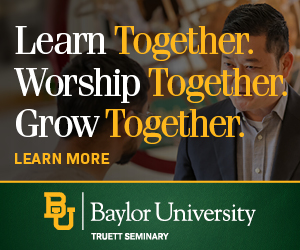As we enter this season of thanksgiving, even among the unchurched, we find a special commitment to spend time rehearsing the history of our great nation. As we rehearse that history, people are encouraged to give thanks for the many blessings we have known though our nation is still, by any historic standard, very young.
By celebrating our history, we are reminded our history defines us, gives us our unique identity in the world. In so very many ways, if we forget that history, we run the risk of losing our identity. People who forget their roots are in danger of wandering without purpose.
It is worthy of note that, as the church was in its infancy, those first sent out to preach the gospel sought the conversion of souls within the context of the greater history of what God was doing to redeem God’s creation.
“We tell you the good news: What God promised our fathers he has fulfilled for us, their children, by raising up Jesus” (13:32-33), the Apostle Paul preached. It was his way of saying to the potential converts that their becoming followers of Jesus was a part of God’s long historic intention with the people of Israel. Christianity, as Paul was defining it, was not so much a new movement as it was the outgrowth of God’s original plan all along.
So it is that true evangelism, the making of disciples, begins with affirming the redeeming work of God all along. There is a sense that being effective disciple-makers in each new generation demands we are good historians. If we do not know the history of God’s work, to what are we calling those we ask to follow Jesus from this point forward? A church without its history is a rudderless church in a sea of rapidly changing currents of thought, philosophy and religion.
We fret about being creative in discovering and implementing effective programs that will appeal to people of the 21st generation. We do well to be concerned that our methods have not been completely left behind by the culture we’re attempting to reach. Yet, programming not knowledgeably connected to its historic purpose runs the risk of losing its true purpose whether it is “effective” or not.
The witness of the book of Acts, especially of chapters 13 and 14, is that the primary agenda of the first century church was the fulfillment of the Great Commission through the effective and meaningful making of disciples. Now, the book of Acts becomes, for us, the historic link to what God has intended since creation.
We are told, in 1 Corinthians 1:26 that, through the act of receiving of the Lord’s Supper, for example, we effectively are preaching the gospel through symbolic action. “Whenever you eat this bread and drink this cup, you proclaim the Lord’s death until he comes,” Paul told the Corinthian believers.
As we take the Lord’s Supper, with one hand we join with the history of God’s redemptive history, “the Lord’s death,” past tense. With the other hand, we point people to what God has yet to do when God completes the renewal of God’s creation, “until he comes,” future tense.
Sign up for our weekly edition and get all our headlines in your inbox on Thursdays
My mother-in-law has, for decades, decorated the walls of her home with large collage picture frames full of photographs of family Thanksgiving gatherings. Walking around and looking at those pictures is a walking journey through the history of generations. I am reminded of how the young have grown and already begun assuming the mantles of family leadership. What I also see, upon closer examination, is that, each year, we are doing more than just sharing a meal and playing games. We are retelling often told stories.
The young overhear those stories and begin to hear their part in the stories. Family traditions and history are being passed from one generation to the next. Each member of the family is bringing along the newly born among us to by teaching them that they are a part of something bigger than themselves, a family with a living history.
If we would engage meaningfully in participating in the extension of the kingdom of God into the world, we must do so by reminding ourselves at this season of the year of one very crucial fact. We are here and we have eternal hope in our future because of what God has done in Christ in the past. Inviting people to become disciples also means asking them to awaken to the history of creation and re-creation of which they already are a part.












We seek to connect God’s story and God’s people around the world. To learn more about God’s story, click here.
Send comments and feedback to Eric Black, our editor. For comments to be published, please specify “letter to the editor.” Maximum length for publication is 300 words.